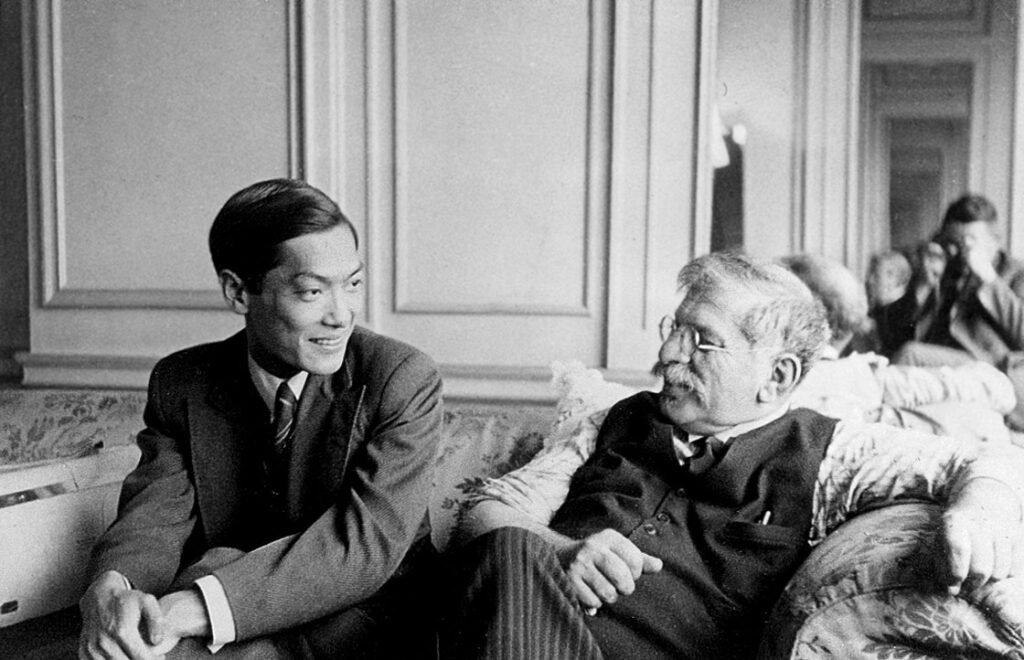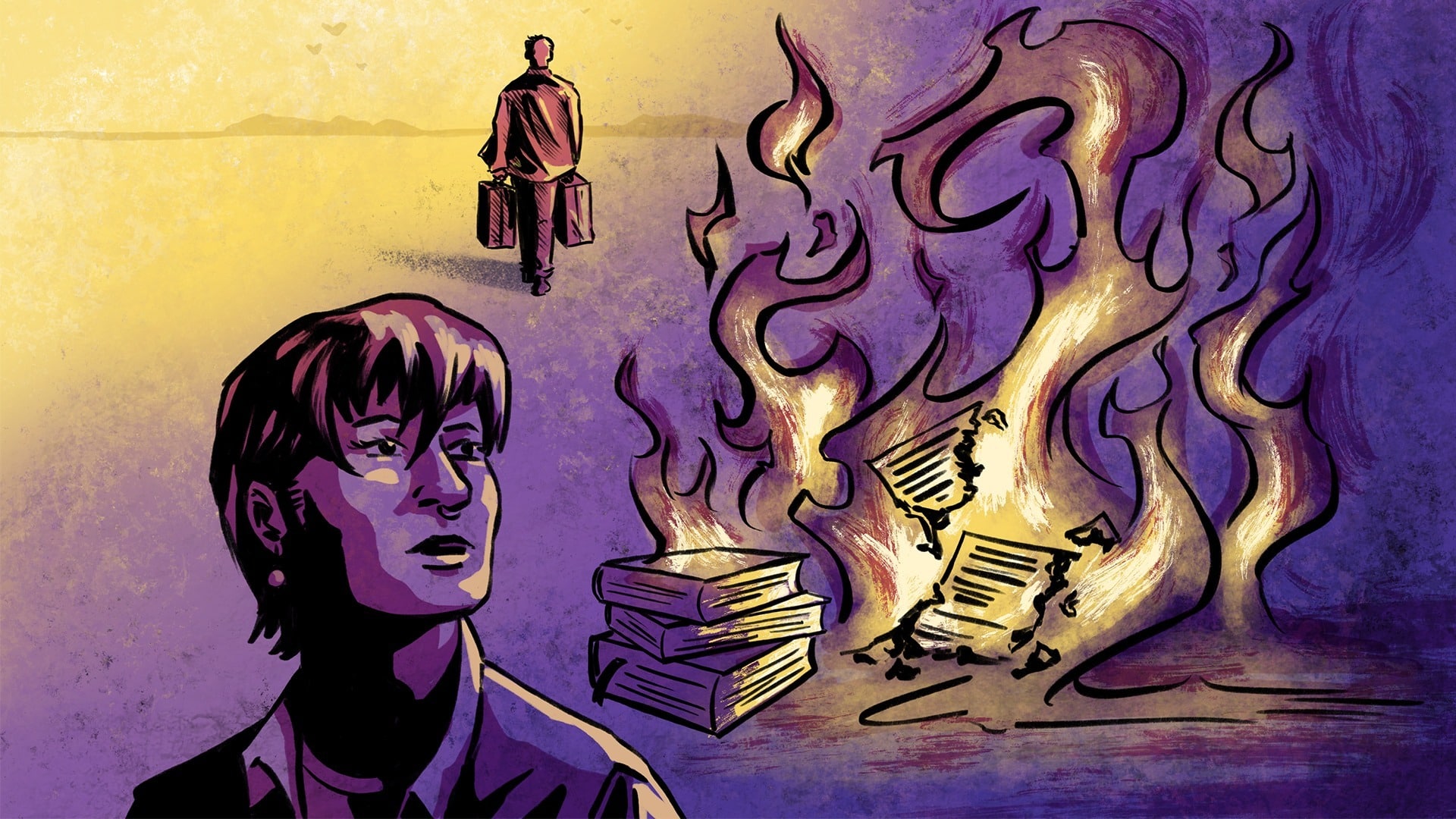Illustration: Noah Weinmann, www.noah-elio.com
Bavarian Prime Minister Markus Söder prohibits gendering with a colon, asterisk or underscore. Or to put it more correctly: it bans gender-appropriate language - because the generic masculine is also a form of gendering. Under the leadership of its highly self-absorbed leader, the anti-prohibition party bans all forms of gender. In authorities, schools and universities, you are no longer allowed to write about "politicians", "citizens" or "teachers".
Trigger point gender: Is non-binarity a "trend"?
The topic of gendering is causing a stir. The three sociologists Steffen Mau, Thomas Lux and Linus Westheuser call this a "trigger point". According to their study, there is a certain degree of consensus across society on many major issues such as migration, diversity and climate protection. However, the debate suddenly intensifies when certain Trigger points be touched. And that includes gendering.
As is so often the case, it is minorities who suffer. In this case, queer, especially non-binary, gender non-conforming and intersex people. The debate is being played out on their backs - sometimes with blatant prejudices and gaps in knowledge.
At the same time, we keep hearing that this is all a "trend", a "fad" that young people in particular are now increasingly pursuing. And these statements exemplify the drama of queer history.
What the vast majority of people do not realise: Non-binary people - and also scientific work on non-binaryness - already existed over 100 years ago, albeit with different words. But the Nazis thoroughly destroyed everything, which set back not only the queer movement in Germany but the entire social debate internationally by decades. The drama is that queer people often don't know their own history. But the world doesn't know it either. And the Nazis, among others, are to blame for this.
43 million genders
In 1897, the Jewish doctor and sexologist Magnus Hirschfeld founded the Scientific-Humanitarian Committee (WhK) in Berlin: the world's first organisation for the rights of queer people. In 1919, he then founded the world's first institute for sexual sciences - also in Berlin. This was also the home of the WhK. Hirschfeld's motto: Through science to justice. And he followed through consistently! He was convinced that science had to be linked to the fight for human rights.
Not only did this make Berlin the centre of global sexology, not only did his institute have an international impact and bring about changes to gender and sexuality laws in several countries, Hirschfeld also made Berlin a place of refuge for queer people from all over the world. In the 1920s, some of the world's first gender reassignment operations took place at his institute. Trans people from that time, who travelled to Berlin from all over the world, reported that they felt happier than ever before after these operations.
Hirschfeld not only conducted numerous studies and surveys on queer lifestyles, he also developed the first theories and terminology to describe and explain these lifestyles. For example, he coined the terms "transvestite" and "transsexualism", early identities for gender diversity before the term "trans" as we use it today existed. And Hirschfeld developed an early scientific theory against the gender binary!
He named 16 different categories that we might describe today as primary and secondary sexual characteristics, gender identity, sexual identity, etc. And he said that in all of these 16 categories you could have either a male expression, a female expression or a mixture of male and female expressions. And he said that in all of these 16 categories you could either have a male characteristic, a female characteristic or a mixture of male and female characteristics. This would theoretically lead to a possibility of 316 gender characteristics, i.e. a total of 43,046,721!
From sexual intermediates to non-binaries
In practice, however, he considered gender to be a continuum with male and female as the two extreme poles. All people would therefore have a mixture of female and male characteristics, but most would tend to cluster at the two ends of this continuum. But many are also more in the middle. And he called these people sexual intermediates!
The theory of sexual intermediates gave people the first scientific opportunity to define themselves outside of the gender binary. For example, non-binary and gender non-conforming people. And this was around one hundred years before our time.
At his institute in Berlin, Hirschfeld also created a gigantic archive and library on gender and sexuality. A huge global collection of knowledge that was concentrated in Berlin. And this was also to pose a threat to this knowledge and the fledgling movement...
The Nazis were the reason for the drama of queer history
After all, if there were social debates about non-binarity around a hundred years ago, why do so many people today believe that this is a new trend?
Because this liberal period was followed by the Nazis! When they seized power in 1933, the Institute was one of the first places they attacked. In the film "A Whole Life" by Alexandra Ripa, Adelheid Schulz, who was a housekeeper at the institute at the time, tells the story:
"I can still see the hordes today... I was sitting alone on Hirschfeld's desk and watched as two Nazis came up to me and said: 'We want the Jew Hirschfeld!"
However, he was travelling around the world and never returned to Germany. So they began to destroy his institute. The archive, the library, the scientific research and papers: Everything fell victim to the Nazis.
"Hirschfeld's bust was carried by the Nazis on a big stick or pole. I saw that. And it brought tears to my eyes! (...) They had all moved away because they were afraid they would be taken away because they were homosexual. I lived here until July. And then... it was over!"
The books and papers that the Nazis removed from the institute were irrevocably destroyed in the infamous book burning. This was not only a severe setback for science in Germany. It was an erasure of the majority of global knowledge about gender diversity.

The lost heritage
After his death in 1935, he bequeathed what little Hirschfeld was able to save from the Nazis to his two partners Karl Giese and Li Shiu Tong (also known as Tao Li). Giese had a new partner a little later and lived with him in Eastern Europe. However, he took his own life when the Nazis invaded the East. He wanted to avoid arrest by the Nazis. His partner was caught by the Nazis, sent to a concentration camp and murdered there. That part of Hirschfeld's legacy has since been lost. Perhaps also destroyed.
Tao Li managed to escape the Nazis. After the war, Germany contacted him to offer him reparations as Hirschfeld's heir. But he refused to communicate with the country that destroyed his partner. And after that, few people knew where he was.
The years passed. Decades.
And then, in 1993, something suddenly happened in Vancouver, Canada: a man suddenly found two suitcases full of German papers, books, diaries and photographs in the rubbish container of his building. This seemed strange to him. He fished it out of the rubbish and posted something on the early version of the internet: could it be of interest to anyone?
Almost 60 years until rediscovery
Almost a decade passed before Ralf Dose from the Magnus Hirschfeld Society in Berlin found this post in the early 2000s. He contacted the man and fortunately he had kept everything. Ralf Dose flew to Canada and brought the little of Hirschfeld's legacy that had not been destroyed by the Nazis back to Berlin.
What had happened? After the war, Tao Li travelled around the world to fulfil Hirschfeld's last wish: To spread sexology around the world. But he felt a little overwhelmed. However, he always had these two suitcases with him. Two suitcases full of the things that Hirschfeld was able to save from the Nazis and bequeath to him. At some point, he settled in Vancouver, Canada - in the same building where this man lived. Tao Li died there in 1993. And people emptied his flat and threw everything in the rubbish. Without knowing what they were actually throwing away.
Had this man not fished these two suitcases out of the rubbish, the last remnants of the world's first queer emancipation movement - and with it the first scientific theories and evidence of gender non-binarity - would have been lost forever.
This is what I call the drama of queer history. When it comes to gender diversity and non-binarity, we are only now slowly returning to where we were around 100 years ago in the social debate. (And even today, it's not just Nazis who are trying to put a stop to this, but also right-wing populists like CSU-Söder). That's why it seems so "new" to many people - even though it's not. The Nazis destroyed everything back then and set the movement and science back decades. I am therefore certain that if the Nazis had never happened, we would be talking about (and above all with) non-binary people very differently today - much more progressively, acceptingly and naturally!










